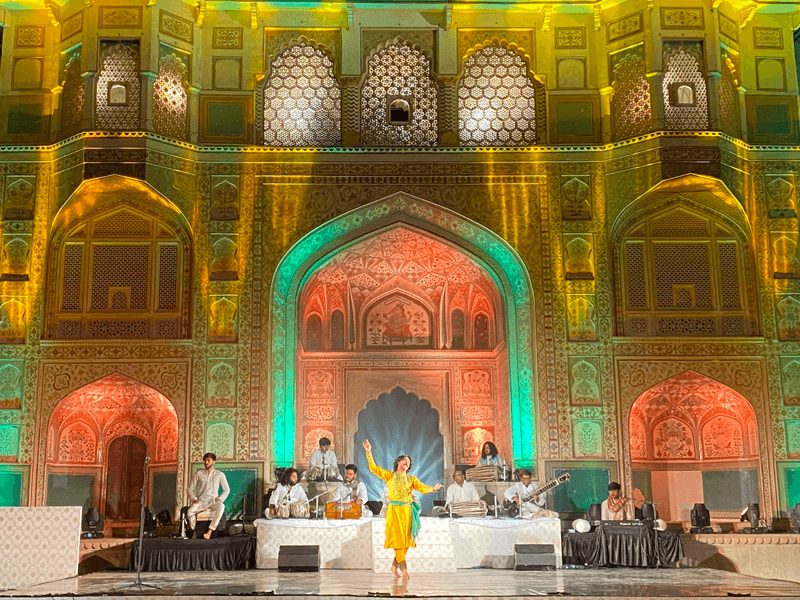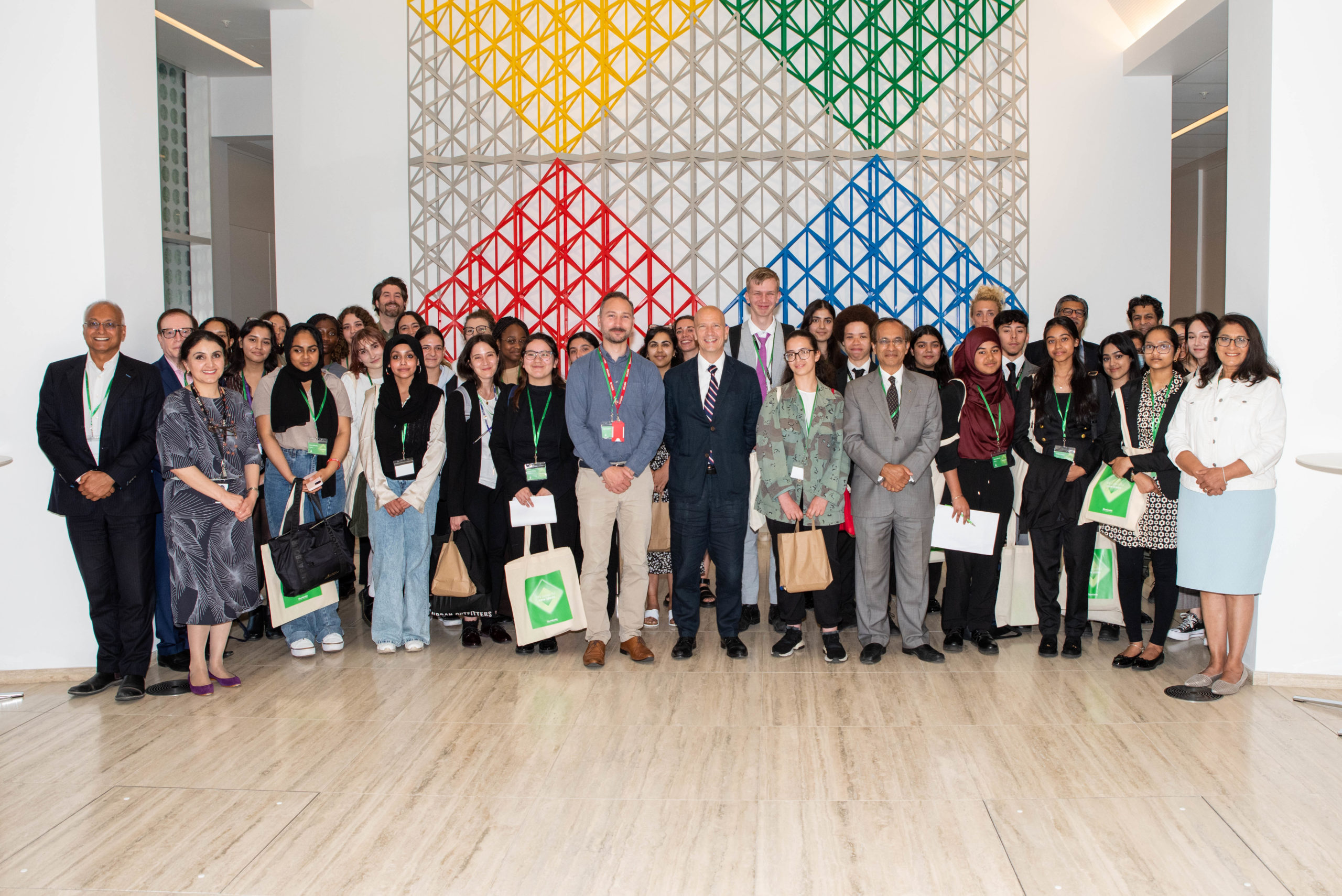The greatest literary show on earth is back! The Jaipur Literature Festival took place in India’s Pink City from 23-27 January 2020. The annual festival presents a unique showcase of South Asia’s literary heritage, oral and performing arts, books and ideas, dialogue and debate. AKF was delighted to be sponsoring and participating in seven sessions.
All times listed are in Indian Standard Time (GMT +5:30)
The New Silk Roads: The Present and Future of the World
5:15pm, 23 January, Charbagh
Peter Frankopan introduced by Bruno Maçães
Peter Frankopan’s Silk Roads – a major reassessment of world history – has sold over 1 million copies worldwide. Its sequel, The New Silk Roads takes a fresh look at the relationships being formed along the length and breadth of the ancient trade routes today. The world is changing dramatically and in an age of Brexit and Trump, the themes of isolation and fragmentation permeating the western world stand in sharp contrast to events along the Silk Roads, where ties are being strengthened and mutual cooperation established.
This prescient contemporary history provides a timely reminder that we live in a world that is profoundly interconnected. Following the Silk Roads eastwards from Europe through to China, by way of Russia and the Middle East, Peter Frankopan, in conversation with Frank Dikotter, assesses the global reverberations of continual shifts in the centre of power. The New Silk Roads asks us to re-examine who we are and where we stand in the world, illuminating the themes on which all our lives and livelihoods depend.
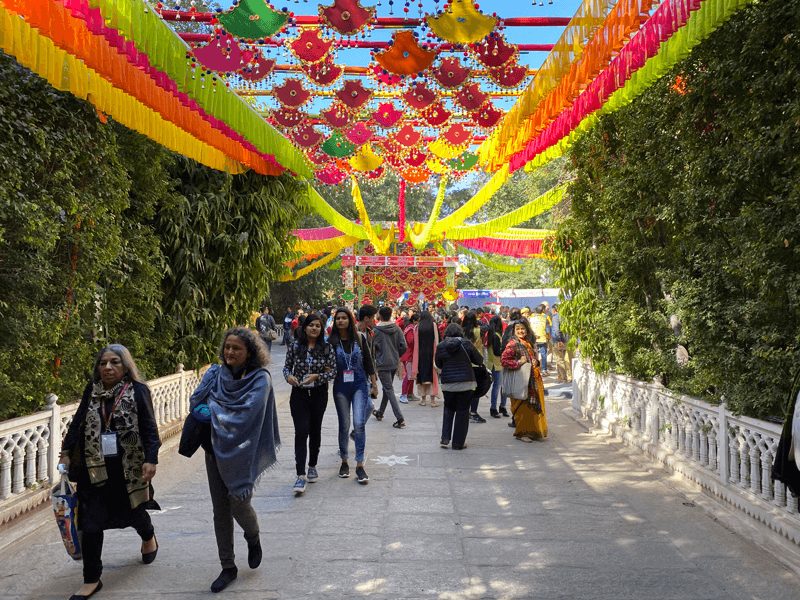
Istanbul: A Tale of Three Cities
10am, 25 January, Charbagh
Bettany Hughes introduced by Tom Holland
Istanbul has always been a place where stories and histories collide and crackle, where the idea is as potent as historical fact. From the Qu’ran to Shakespeare, this city with three names – Byzantium, Constantinople, Istanbul – resonates as an idea and a place, and overspills its boundaries – real and imagined. Standing as the gateway between the East and West, it has served as the capital of the Roman, Byzantine, Latin and Ottoman Empires. For much of its history it was known simply as The City, but, as Bettany Hughes reveals, Istanbul is not just a city, but a story.
In this epic new biography, Hughes takes us on a dazzling historical journey through the many incarnations of one of the world’s greatest cities. As the longest-lived political entity in Europe, over the last 6,000 years Istanbul has absorbed a mosaic of micro-cities and cultures all gathering around the core. At the latest count archaeologists have measured forty-two human habitation layers. Phoenicians, Genoese, Venetians, Jews, Vikings, Azeris all called a patch of this earth their home. Based on meticulous research and new archaeological evidence, Bettany Hughes gives a captivating portrait of the momentous life of Istanbul is visceral, immediate and scholarly narrative history at its finest. Introduced by presenter and author of Dominion (a history of Christianity), Tom Holland.
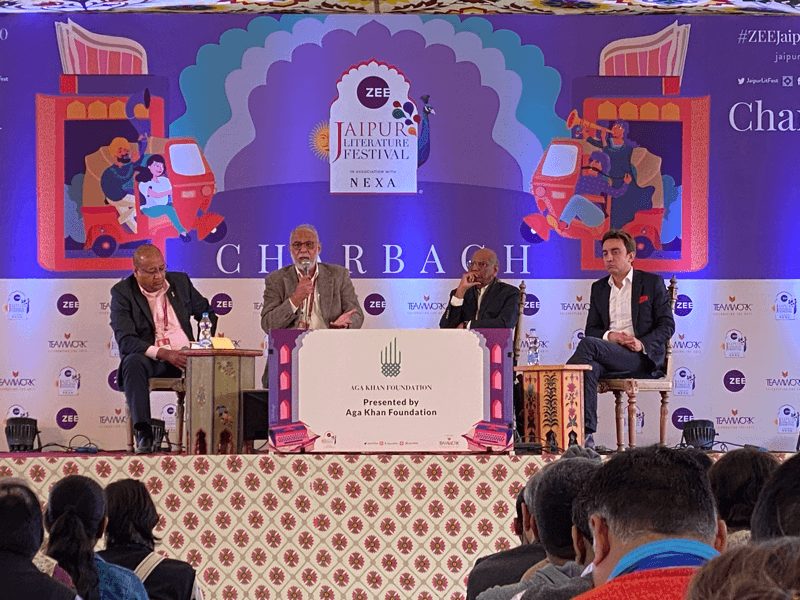
Belt, Road and Beyond
11:15am, 26 January, Charbagh
Bruno Maçães, Manoj Joshi, Shyam Saran and Sujeev Shakya in conversation with Nirupama Rao
China’s mammoth Belt and Road initiative, straddling almost seventy countries, is an infrastructure project of staggering complexity. Bruno Maçães, the author of Belt and Road: A Chinese World Order, discusses the ambitions and implications of BRI as it tracks new trade and energy routes, with particular emphasis on its feasibility and implications in India and South Asia.
Portugese politician, writer and former Minister of European Affairs, Bruno Maçães is the author of The Dawn of Eurasia and other works. Indian journalist and Distinguished Fellow at the Observer Research Foundation Manoj Joshi has written extensively on national and international politics. Former Indian Foreign Secretary, Nirupama Rao, has held key ambassadorial assignments to Sri Lanka, China and the United States and is the author of Tell it on the Mountain: India and China, 1949-1962. Padma Bhushan awardee, Shyam Saran, is a career diplomat and the author of How India Sees the World. Sujeev Shakya writes and speaks extensively on business, economy, leadership and development and is the author of Unleashing The Vajra.
“The Jaipur Literature Festival is a sumptuous feast of ideas.”
Poor Economics: Fighting Global Poverty
12:30pm, 26 January, Front Lawn
Abhijit V. Banerjee in conversation with Sreenivasan Jain
Abhijit V. Banerjee, Esther Duflo and Michael Kremer were awarded the Nobel Prize for Economic Sciences 2019 for ‘their experimental approach to alleviating global poverty’ by breaking down a complex problem into smaller, more manageable questions. Abhijit Banerjee returns to the Jaipur Literature Festival to speak of his RCT research-based approach to development economics. In conversation with journalist Sreenivasan Jain, he explains the need to understand and measure what happens in the real world to alleviate poverty and the necessity of making the poor and their decision-making central to the process. An inspirational session of insights and learnings vital to understanding our world.
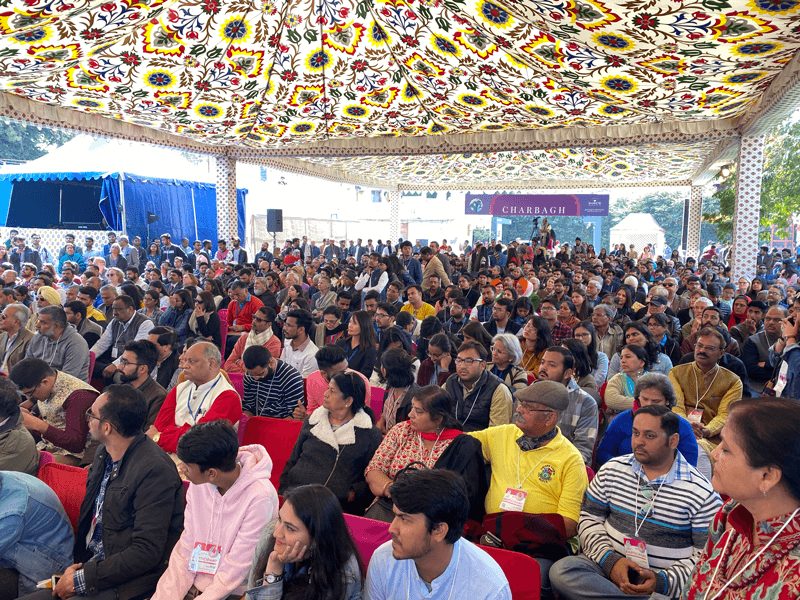
Writing the Village: Addressing Rural Distress
2.30pm, 26 January, Durbar Hall
Anukrti Upadhay, Namita Waikar, Tinni Sawhney and Perumal Murugan in conversation with Manasi Subramaniam
Mahatma Gandhi said India lives in its villages. Rural India constitutes the core of Indian society yet remains in the periphery of social and media consciousness. A session that examines the damage and despair that is the fallout of the agrarian crisis. Award-winning Tamil writer Perumal Murugan, author of The Story of a Goat, movingly explores the life of the farming community. Namita Waikar is the author of The Long March, which documents the fallout of the agrarian crisis in Maharashtra. Anukriti Upadhyay’s recent novels Bhaunri and Daura transport us to the furthest outposts of rural Rajasthan. Tinni Sawhney has over 25 years of experience in sustainable livelihood development in rural India and is currently the Director of Programmes at the Aga Khan Foundation (India). Together, they share their experiences of documenting and writing the rural life. In conversation with Manasi Subramaniam, Senior Commissioning Editor at Penguin Random House India.
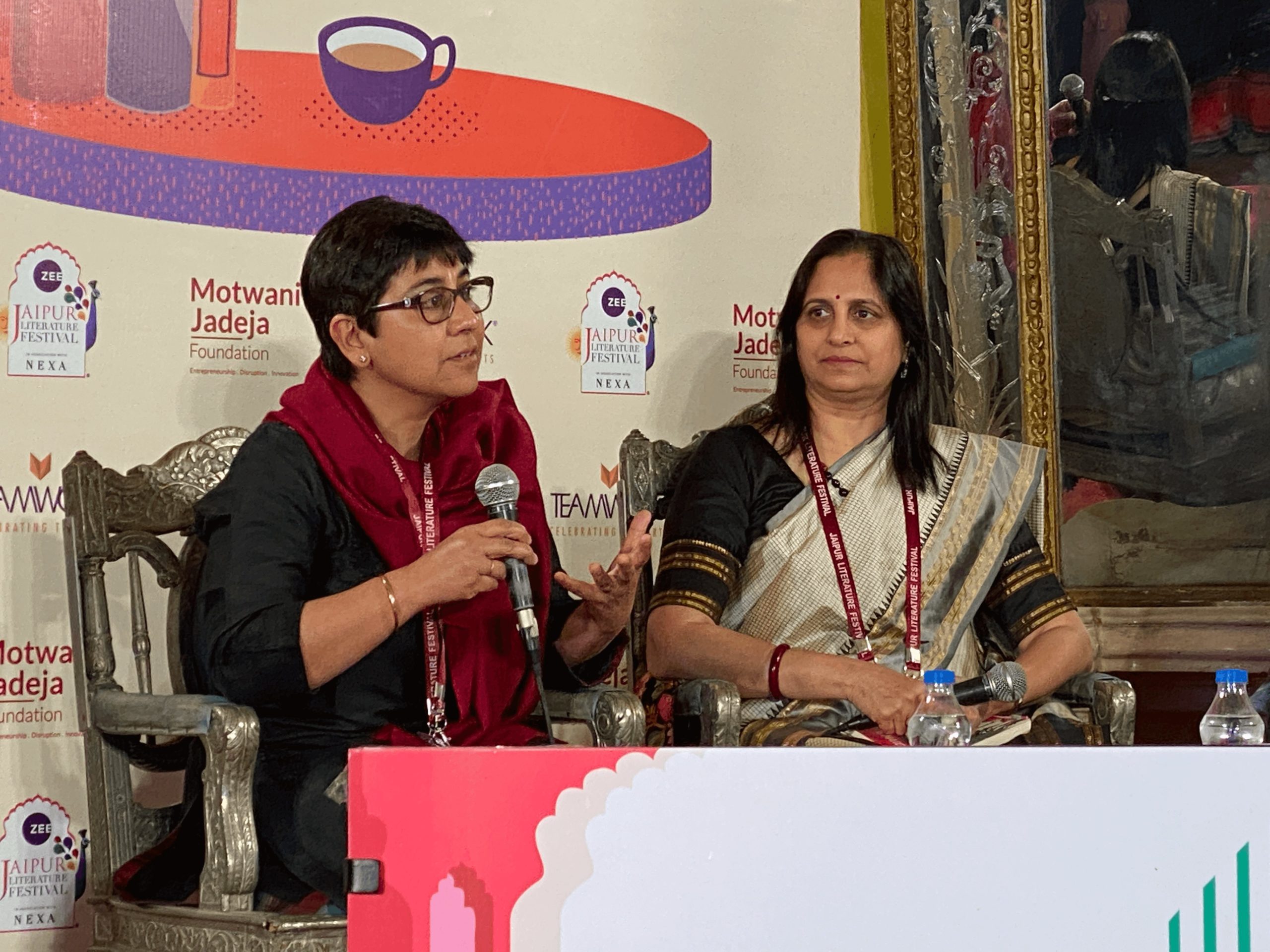
Climate Emergency
10am, 27 January, Charbagh
Shubhangi Swarup and Apoorva Oza (CEO of AKRSP India) in conversation with Samir Saran
All around us a clarion call for climate emergency measures have been sounded by citizens, activists, scientists, authors and thinkers. But all seems to have failed – science, politics, literature – nothing has been able to emerge as a changemaker to prevent this very imminent decay of our ecosystem. Is it time now for the arts to step in and explore that special place where scientific theorising and identity politics can’t get in? Find out more from writer, educator and filmmaker, Shubhangi Swarup, reformist, solar energy innovator and educationist, Sonam Wangchuk, author and CEO of the Aga Khan Rural Support Programme (India), Apoorva Oza, and actress, model and social activist, Dia Mirza.
Al-Andulas: On Islamic Spain
10am, 27 January, Durbar Hall
Brian A. Catlos in conversation with William Dalrymple
In Kingdoms of Faith, Catlos rewrites the history of Islamic Spain from the ground up, evoking the cultural splendor of al-Andalus, while offering an authoritative new interpretation of the forces that shaped it. Prior accounts have portrayed Islamic Spain as a paradise of enlightened tolerance or the site where civilisations clashed. Catlos taps a wide array of primary sources to paint a more complex portrait, showing how Muslims, Christians and Jews together built a sophisticated civilisation that transformed the western world, even as they waged relentless war against each other and their coreligionists. Religion was often the language of conflict, but seldom its cause – a lesson we would do well to learn in our own time. Brian Catlos talks to William Dalrymple.
The Jaipur Literature Festival will once again return to the British Library this June – we hope to see you there!
